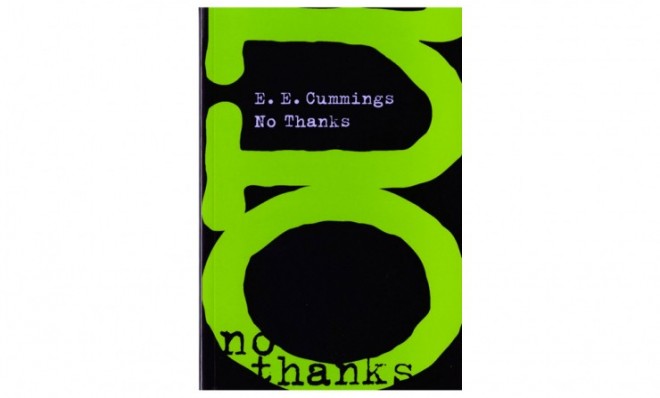7 book dedications that basically say 'screw you'
"I do not dedicate my book to any body; for I know nobody worth dedicating it to. I have no friends, no children, no wife, no home; — no relations, no well-wishers; — nobody to love, and nobody to care for"


A free daily email with the biggest news stories of the day – and the best features from TheWeek.com
You are now subscribed
Your newsletter sign-up was successful

1. POST OFFICE, CHARLES BUKOWSKI (1971)
"This is presented as a work of fiction and dedicated to nobody."
Even in his first novel, Bukowski felt no need to flatter anyone.
The Week
Escape your echo chamber. Get the facts behind the news, plus analysis from multiple perspectives.

Sign up for The Week's Free Newsletters
From our morning news briefing to a weekly Good News Newsletter, get the best of The Week delivered directly to your inbox.
From our morning news briefing to a weekly Good News Newsletter, get the best of The Week delivered directly to your inbox.
2. THIS BOY'S LIFE, TOBIAS WOLFF (1989)
"My first stepfather used to say that what I didn't know would fill a book. Well, here it is."
The acknowledgements section of Wolff's memoir of a difficult adolescence with abusive stepfathers ends on a finely honed knifepoint.
3. NO THANKS, E.E. CUMMINGS (1935)
A free daily email with the biggest news stories of the day – and the best features from TheWeek.com
E.E. Cummings wrote a book of poems that was turned down by 14 publishers. He finally published it under the title No Thanks. The dedication was a list of all the publishers who had rejected it, arranged in the shape of a funeral urn.
4. PSYCHOLOGICAL CARE OF THE INFANT AND CHILD, JOHN WATSON (1928)
"To the First Mother who Brings up a Happy Child."
Watson's book, which advises against giving children unrealistic expectations by overindulging them with love, is written from the viewpoint that the recipient of his dedication does not yet exist, essentially rendering the dedication a "screw you" to all mothers.
5. SILVER BULLET: THE MARTINI IN AMERICAN CIVILIZATION, LOWELL EDMUNDS (1981)
"I should like to blame the editors of Notes and Queries for rejecting the extremely concise and dignified query on the Martini I sent them and I should also like to blame the editor of the New York Times Book Review for failing to print my author's query. May these editors find that their gin has turned to gasoline or may they drink too many Martinis and then swallow a toothpick, as Sherwood Anderson is said to have done."
Authors are always thanking others for their help. Why shouldn't they also blame others for their non-help?
6. NO CONTEST: THE CASE AGAINST COMPETITION, ALFIE KOHN (1986)
"Let me note, finally, that most of the research for this book was done in the libraries of Harvard University, the size of whose holdings is matched only by the school's determination to restrict access to them. I am delighted to have been able to use these resources, and it hardly matters that I was afforded this privilege only because the school thought I was someone else."
Crediting the collections you used for your research is the honorable thing to do, even when packaged with a "screw you for trying to keep me from using them."
7. LOGAN: A FAMILY HISTORY, JOHN NEAL (1822)
"I do not dedicate my book to any body; for I know nobody worth dedicating it to. I have no friends, no children, no wife, no home; — no relations, no well-wishers; — nobody to love, and nobody to care for. To whom shall I; to whom can I dedicate it? To my Maker! It is unworthy of him. To my countrymen? They are unworthy of me. For the men of past ages I have very little veneration; for those of the present, not at all. To whom shall I entrust it? Who will care for me, by to-morrow? Who will do battle for my book, when I am gone? Will posterity? Yea, posterity will do me justice. To posterity then — to the winds! I bequeath it! I devote it — as a Roman would his enemy, to the fierce and unsparing charities of another world — to a generation of spirits — to the shadowy and crowned potentates of hereafter. I — I — I have done — the blood of the red man is growing cold — farewell — farewell forever!"
This book of fiction was based on the story of a real Native American chief whose family was murdered by a band of white outlaws. The author (whose biography is titled A Down-East Yankee from the District of Maine) had a stubborn temperament that would never let him settle for just a "screw you" where a "screw you all" would do.
More from Mental Floss...
* What causes "old book" smell?
Arika Okrent is editor-at-large at TheWeek.com and a frequent contributor to Mental Floss. She is the author of In the Land of Invented Languages, a history of the attempt to build a better language. She holds a doctorate in linguistics and a first-level certification in Klingon. Follow her on Twitter.
-
 Political cartoons for February 14
Political cartoons for February 14Cartoons Saturday's political cartoons include a Valentine's grift, Hillary on the hook, and more
-
 Tourangelle-style pork with prunes recipe
Tourangelle-style pork with prunes recipeThe Week Recommends This traditional, rustic dish is a French classic
-
 The Epstein files: glimpses of a deeply disturbing world
The Epstein files: glimpses of a deeply disturbing worldIn the Spotlight Trove of released documents paint a picture of depravity and privilege in which men hold the cards, and women are powerless or peripheral
